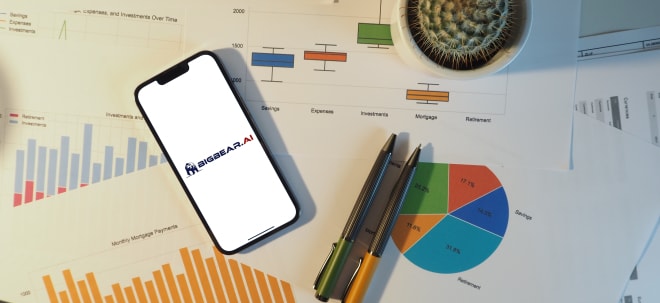"Depending on the actual results, the U.S. election may provide some support to markets globally as it may be seen as the promise of more fiscal stimulus, particularly if Obama wins," a currency strategist with Calyon in Hong Kong said. Obama advocates a second stimulus package to jump-start the US economy. Valued at $175 billion, the plan would include funding for infrastructure and a round of tax rebates. McCain wants a $300 billion housing plan that would use some of the funds from the recent $700 billion Wall Street bailout package to buy up troubled mortgages. Still, analysts by and large do not believe that one candidate would boost the pummeled stock market more than the other. For Investors: In fact, they predict that stocks are headed for a recovery no matter who is elected, and that the policies of both McCain and Obama will be guided largely by the weak economy and recent flood of government intervention enacted to keep the global financial system from collapsing. "The fact is, the passage of the U.S. election might actually come as a relief to the market rather than uncertainty, as once the election is done, the political spectrum of the US will be quite clear for the next four years,'' said Subodh Kumar, chief investment strategist at Subodh Kumar & Associates in Toronto.
Given how much the Dow Jones industrial average has shed this year—the index is down 34.2 percent from its Oct. 9, 2007 peak of 14,164.53— many market watchers believe the economy's weakness could be priced in already. On Monday, the stock market closed narrowly mixed in light trading. The Dow did something that has become unheard of in recent months—it made just a single-digit point decline. Still, the economic news continues to be grim. US factory orders fell 2.5% in September, the Commerce Department said, more than economists had forecast. On Monday, the Institute for Supply Management revealed the worst monthly contraction in manufacturing activity and automakers reported the lowest level of U.S. car sales in more than 17 years. RELATED LINKS
Current DateTime: 08:27:20 04 Nov 2008
LinksList Documentid: 27533620 Meanwhile, the interest rates banks charge each other for short term loans fell again Tuesday, providing further hope that measures to shore up the credit markets are taking hold. The Treasury Department is considering using more of its $700 billion rescue package to buy stakes in a wide range of financial companies beyond just banks and insurers after tentative signs the program is working, according to the Wall Street Journal. The paper cited sources familiar with the matter saying the companies in focus include bond insurers and specialty finance firms such as General Electric's [GE Loading... ()  ] GE Capital unit and CIT Group [CIT Loading... () ] GE Capital unit and CIT Group [CIT Loading... ()  ]. ].—Reuters and AP contributed to this report. © 2008 CNBC ![]()
Tools: Print Print Email Email Del.icio.us Del.icio.us Digg ItMORE FROM CNBCTOPIC : Barack ObamaView AllHeadlinesPoll: Who Will You Vote For?Election 2008 Facts and StatsFive Economic Challenges Facing the Next PresidentPostsCrescenzi: Obama Will Boost the Nation's ConfidenceCarl’s Corner: The ElectionTrade The Vote: Your TaxesVideoWhat a Democratic Win Means for Health CareWho Will Make the Best Leader?Which US Candidate is Better for the Economy?TOPIC : John McCainView AllHeadlinesPoll: Who Will You Vote For?Election 2008 Facts and StatsFive Economic Challenges Facing the Next PresidentPostsCrescenzi: Obama Will Boost the Nation's ConfidenceCarl’s Corner: The ElectionTrade The Vote: Your TaxesVideoWho Will Make the Best Leader?Which US Candidate is Better for the Economy?Victory for McCain 'Virtually Impossible'TOPIC : Economy (Global)View AllHeadlinesBorrowing Costs Fall to Lowest Level in 5 MonthsNew Law Cuts LA Foreclosures 50%Euro Shares Up 2%; Banks, Oils LeadPostsCrisis of Confidence: Is Your Bank Safe?Traders: White House Winner Faces Tough TimesObama And The Ability To Cross Racial Lines Digg ItMORE FROM CNBCTOPIC : Barack ObamaView AllHeadlinesPoll: Who Will You Vote For?Election 2008 Facts and StatsFive Economic Challenges Facing the Next PresidentPostsCrescenzi: Obama Will Boost the Nation's ConfidenceCarl’s Corner: The ElectionTrade The Vote: Your TaxesVideoWhat a Democratic Win Means for Health CareWho Will Make the Best Leader?Which US Candidate is Better for the Economy?TOPIC : John McCainView AllHeadlinesPoll: Who Will You Vote For?Election 2008 Facts and StatsFive Economic Challenges Facing the Next PresidentPostsCrescenzi: Obama Will Boost the Nation's ConfidenceCarl’s Corner: The ElectionTrade The Vote: Your TaxesVideoWho Will Make the Best Leader?Which US Candidate is Better for the Economy?Victory for McCain 'Virtually Impossible'TOPIC : Economy (Global)View AllHeadlinesBorrowing Costs Fall to Lowest Level in 5 MonthsNew Law Cuts LA Foreclosures 50%Euro Shares Up 2%; Banks, Oils LeadPostsCrisis of Confidence: Is Your Bank Safe?Traders: White House Winner Faces Tough TimesObama And The Ability To Cross Racial Lines -----------
Das Leben ist wie ein Papierflugzeug, sitzt du drin und es regnet dann bist du am Arsch(In Englisch klingt das besser:)) |


 Thread abonnieren
Thread abonnieren




 Print
Print Email
Email